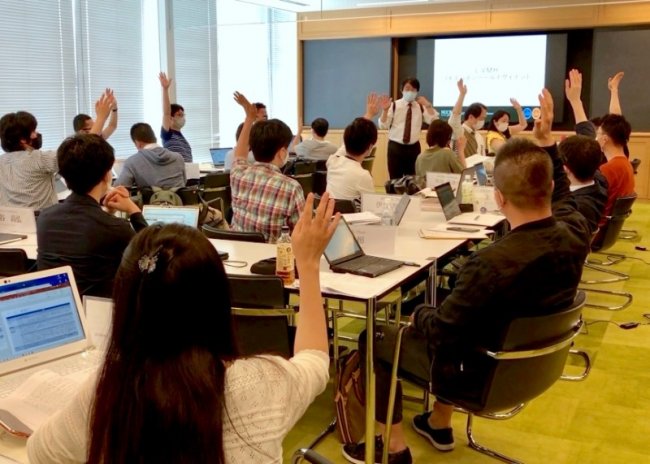The Osaka Campus has been operating face-to-face classes since the fall semester of 2020, observing ventilation, social distance, and thorough countermeasures against viral infections, and will introduce "Crisis Management and Leading Change" by Professor Nana Otsuki, which will start on November 14, 2020. The course will be offered on November 14, 2020.
The objective of this class is to understand the nature of "crisis" and to acquire the crisis management skills necessary to improve corporate value. We will also examine the commonalities and differences among the world's economic crises and the mechanisms of their occurrence. We will examine how to detect the signs of a crisis and take measures, what policies should be taken after the fact, and what strategies individual companies and financial institutions should adopt.
The theme that enlivened the morning of the second day of class was "Fraud". Fraud in a company is a serious problem that can eventually lead to a "crisis" that can destroy the entire company. However, it is not clear whether fraud is an individual problem or an organizational problem. Some say that the so-called research fraud that occurs in scientific and technological research is indeed a matter of individual conscience, but what about fraud in companies? Reinhold Niebuhr, in his book Moral Man and Immoral Society, says that it is extremely difficult to persuade a group of people morally. Even if the pretense of higher sales volume results in higher taxes, the image of the company may be enhanced and the stock price may go up. There is always room for fraud due to distorted corporate patronage. So how can we prevent fraud and control the "crisis"? It can be said that the role of outside directors and auditors is to prevent fraud and contribute to improvement, but there is an asymmetry between internal and external information, and if internal cohesion is distorted, it may be difficult to establish a self-cleansing mechanism and its function.
The students raised their hands one after another to express their thoughts on this topic, where it was obvious that views differed depending on the individual's background.

 Brochure
Brochure
 Info Session
Info Session
 Application
Application
 Alumni Voices
Alumni Voices












